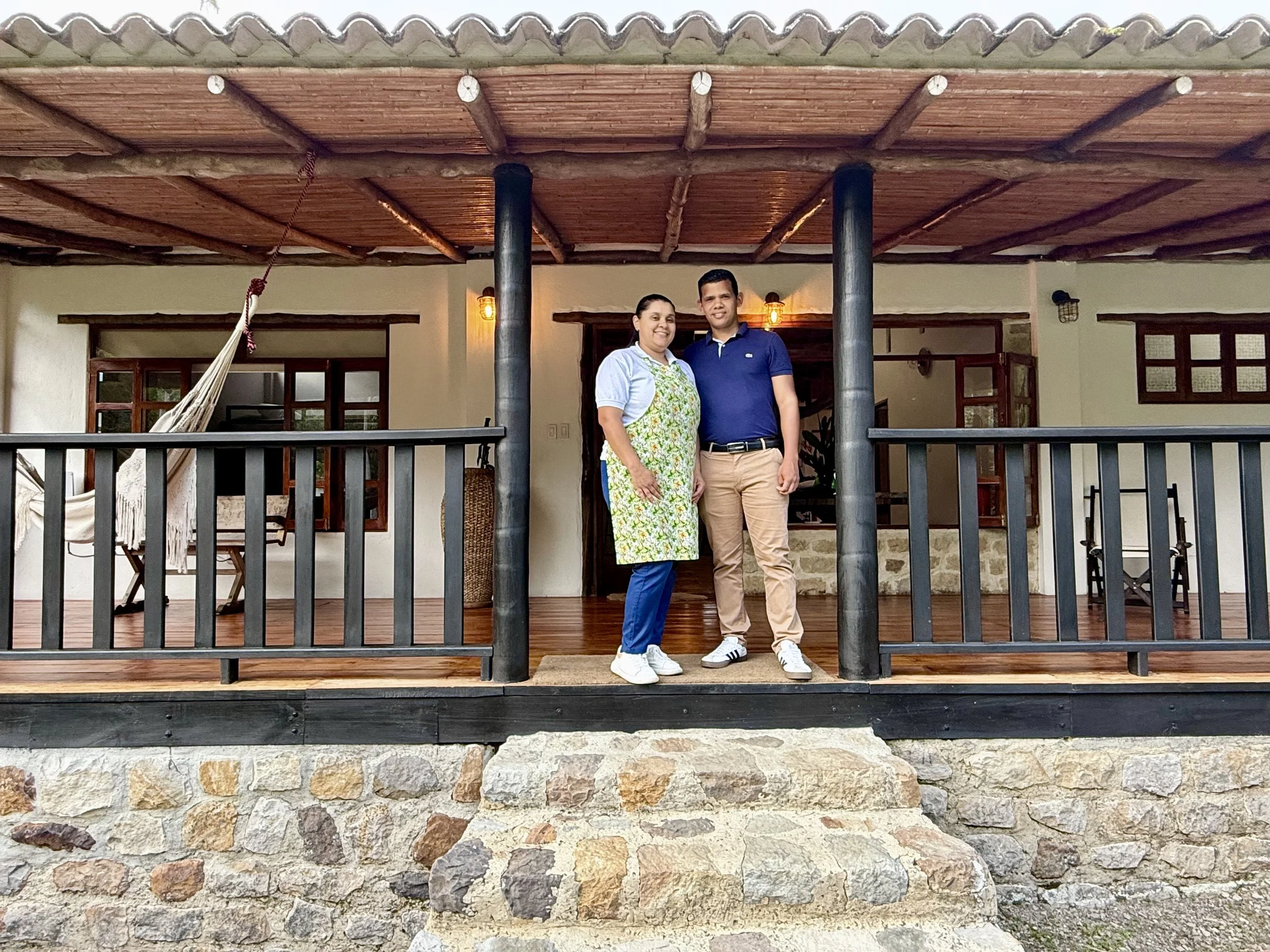Community-First Travel, It’s Personal
“Local hiring” gets thrown around a lot in sustainable tourism circles. And on paper, it sounds simple: hire locals, keep more money in the community, and good things follow.
But I’ve lived and built businesses in Colombia and Peru. I’ve recruited teams, employed locals, navigated labor laws, and learned, sometimes the hard way, that the reality is far more complex.
In Colombia, around 60% of the workforce operates with informal contracts. In rural areas, where most international development and “regenerative tourism” projects are concentrated, that number climbs closer to 70%. That means most workers don’t receive health benefits, pension contributions, or legal protections. They also don’t contribute to the tax system. So even when you’re “hiring local,” you may still be plugging into an ecosystem where workers are underpaid, overworked, and completely unprotected.
What They Don’t Tell You About Hiring Local
In Colombia, the rough cost to the employer of employing someone legally is about 50% more than their salary. That’s because you’re not just paying wages, you’re responsible for health insurance, pension, social security, and two mandatory bonuses a year. Most employers end up paying 13–14 months of salary annually. Layoffs? If you let someone go without cause, you’re required to pay severance equivalent of about a month of salary per year worked, based on their most recent paycheck. Miss a payment, and you’re personally liable. As the business owner, you could even face criminal charges. This does not incentivize small business owners to encourage loyalty, increase salaries, or offer formal employment contracts.
I’ve been there.
When WhereNext Creative scaled up to deliver USAID’s Destination Nature’s 40 million USD sustainable tourism project, we hired a brilliant team of Colombian creatives and full-time staff. However, when the project was abruptly shut down, the prime contractor, who was legally obligated to cover severance for our team in the event of contract cancellation, pulled out of Colombia and ghosted. I was left personally liable for hundreds of thousands of dollars in mandatory payouts. If I hadn’t covered the money to compensate for our prime contractor’s non-payment, I could have faced criminal charges.
So What Do We Do?
We ask better questions.
Is it more ethical to send guests to a global hotel chain that complies with labor law or a “local” operator who cycles through informal labor with no protections?
At WhereNext Travel, we decided to go deeper. Community-first travel starts with a real economic framework, one where local stakeholders earn not just wages, but livelihoods. Everyone we work with, guides, chefs, drivers, hoteliers, must be treated as an entrepreneur, someone who directly profits from tourism and has a stake in its success.
If they don’t see this industry as a better option than illicit mining, coca farming, or even an informal contract at a bakery, then sustainability is just a brochure word.
Without this economic foundation, sustainable and regenerative tourism are philosophies, not actions.
I think about the birdwatching guide I met in a former guerrilla zone in Colombia while producing The Birders documentary film for the Colombian government. After years living in conflict, he's now building a life around conservation and tourism, and sees a real path forward.
Or the couple we hired to run Finca Gualiva, WhereNext Travel’s farm and rainforest reserve in Colombia. My wife, Anita, who leads HR for the largest company in Latin America, and I took over the finca only to find that the existing staff was planning to leave the following month. We urgently needed new caretakers. We found a couple with glowing online reviews from their time at a locally owned agrotourism lodge that regularly hosted foreign guests who felt they were traveling responsibly by booking “locally.” When we interviewed them, we discovered that they did not have an employment contract. They were on call 24/7, paid only when guests were present, and had never received a paid vacation. One of them was told she’d be given “months of unpaid leave” during her pregnancy as a “benefit.”
Anita walked them through Colombian labor law, including legally required paid maternity leave, vacation, and retirement contributions, and drew up their first official employment contracts. They started work at Finca Gualiva the next day.
That’s what community-first looks like in practice for me, not in theory.
And that’s the standard we’re working toward every day at WhereNext Travel.
#FeelSomething



